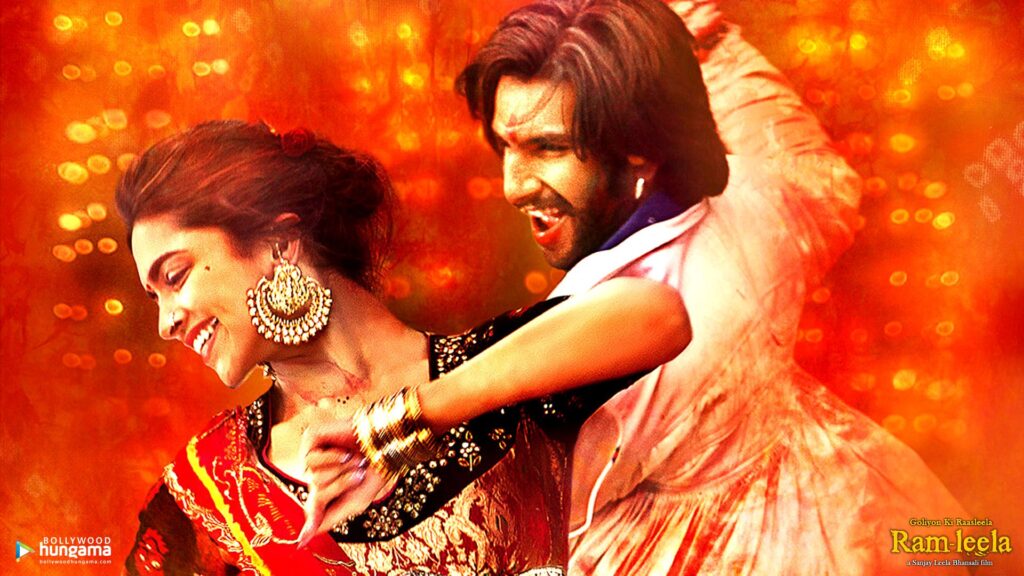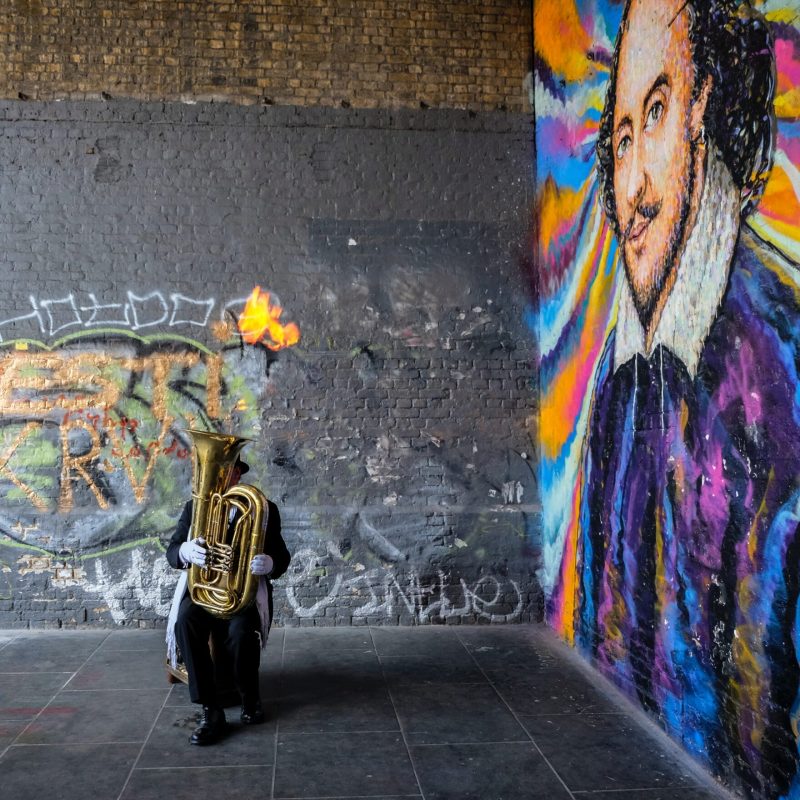We all remember the days we spent reading Shakespeare’s plays in class and getting annoyed by our English teacher’s lectures to find the hidden meaning in the text. Almost all of us have some memory attached to Shakespeare, be it good or bad.
Shakespeare is such a well-known playwright that almost everyone has at least heard his name. There have been countless adaptations of his works in different languages. When the world is using Shakespeare’s plays to fuel their creative work, how can Bollywood remain behind?
Today, we’re enlisting six Bollywood adaptations of Shakespeare’s works. Most of the movies adapted from Shakespeare’s plays are well-known Bollywood films that almost everyone has watched once.
Got your brain cells in motion? Are you trying to find out Shakespeare’s references in any of your previously watched films?
Don’t worry; you don’t need to do all of this on your own. Read below to find out a list of Bollywood Shakespeare movies.

Angoor (1982) –
Directed by Gulzar Sahab, Angoor is a Bollywood classic that is on everybody’s watch list. This comedy film starring Sanjeev Kumar and Deven Verma is based on Shakespeare’s play The Comedy of Errors. The film revolves around two pairs of twins separated at birth and how their lives take a massive turn when they meet in adulthood.
The confusing plot creates elements of surprise and laughter. It is coupled with the motif of mistaken identities that are present in The Comedy of Errors too. Angoor is praised for its script and captivating story. Even though it’s a copy of one of Shakespeare’s plays,yet it feels very authentic, and it retains the comedy element in its entirety.
Khoon Ka Khoon (1935) –
This Hindi/Urdu film is one of the earliest adaptations of Shakespeare’s play Hamlet. It is regarded as one of the most treasured films of Indian cinema. Sohrab Modi, the director of this film, is known as “the man who brought Shakespeare to the Indian screen.” The plot remains true to the original prop of Hamlet. Sohrab Modi has himself played the role of Hamlet, and Nassem Banu played Ophelia. The story and the film’s script were contributed by Mehdi Hassan Ahsan, who also wrote an Urdu version of Hamlet.
3 . Maqbool (2003) –
This film, starring prominent actors like Irrfan Khan and Tabu, was based on one of Shakespeare’s tragedies -Macbeth. Directed by Vishal Bhardwaj, Maqbool is a crime drama film that brought international acclaim to director Vishal Bhardwaj. Though the film didn’t win the audience’s support and didn’t perform well at the Box office, critics appreciated it and gathered some awards. Rediff described the film as “a visual gallery that is an intelligent blend of dark, tragic overtones and comic, satirical undertones.” And India Today wrote that the film was a “haunting operatic tragedy.”
Omkara (2006) –
After Maqbool’s critical success, Vishal Bhardwaj decided to make another film based on Shakespeare’s tragedy. This time he chose Othello. In lead roles, the cast included Ajay Devgn, Kareena Kapoor, Saif Ali Khan, Konkana Sen Sharma, Vivek Oberoi, and Bipasha Basu. Just like his previous film, this time too, Vishal Bhardwaj himself composed the film’s soundtrack. The film won multiple national and international awards and was screened at various well-known film festivals. Due to the dark theme and strong language, the film couldn’t garner reviews from family audiences in India. However, it was a huge success abroad.
Haider (2014) –
The third instalment of Vishal Bhardwaj’s Shakespearean trilogy, Haider, is a crime-drama starring Shahid Kapoor and Tabu in lead roles with Irrfan Khan, Kay Kay Menon, and Shraddha Kapoor in supporting roles. The insurgency-hit Kashmir conflicts of 1995 serve as the setting of this film. The plot follows a young man who has returned to Kashmir on receiving news of his father’s disappearance. Intense drama follows as family secrets are unveiled. The film was critically acclaimed and was successful at the Box office . It gained widespread media attention due to its controversial subject. Still it was able to proclaim several national and international awards. It was praised for its screenplay, acting, soundtrack, cinematography, etc.
RamLeela (2013) –
Written and directed by Sanjay Leela Bhansali, Ram-Leela is a tragic romance film based on Shakespeare’s play Romeo and Juliet. Ranveer Singh and Deepika Padukone played the lead roles. Which got the film numerous positive reviews. Singh’s and Padukone’s performance also garnered praise from critics. It was a huge box office success and became one of the highest-grossing Indian films.
The story revolved around a pair of star-crossed lovers, Ram and Leela, whose families were each other’s enemies. Bhansali gave an Indian touch to the famous tragic romance play Romeo and Juliet.
The film received several Filmfare nominations and awards as well.

Timeless Shakespeare
Shakespeare’s works are timeless, and this is pretty obvious from the number of films, plays, and songs based on his plays. Although the language and setting of his works seem confined to a particular period, the themes, ideas and characters are ageless. They are free from the confines of language, region, nationality, age, and gender.
The films mentioned here are widely popular in India (and abroad). They received both popular and critical appreciation. These films have domesticated Shakespeare like never before.
Shakespeare and his works are always treated as a symbol of western culture. Filmmakers and writers have tried to domesticate Shakespeare. Many films in different Indian languages based on Shakespearean themes have made Shakespeare less foreign.
Read more about Shakespeare here!
No one seems to get bored of Bollywood Shakespeare adaptations because the Shakespearean motif has all the ingredients for a box office hit. There is romance, drama, greed for power, family conflicts, violence, murder, back-stabbing, glamour, and vast music, song, and dance potential. Which filmmaker will not want this?
For the coming weekend, watch these Bollywood Shakespeare movies and channel your inner literary nerd. There is nothing better than enjoying these critically acclaimed films on a lazy Sunday afternoon.
After all, who can deny a combination of Shakespeare and Bollywood?

